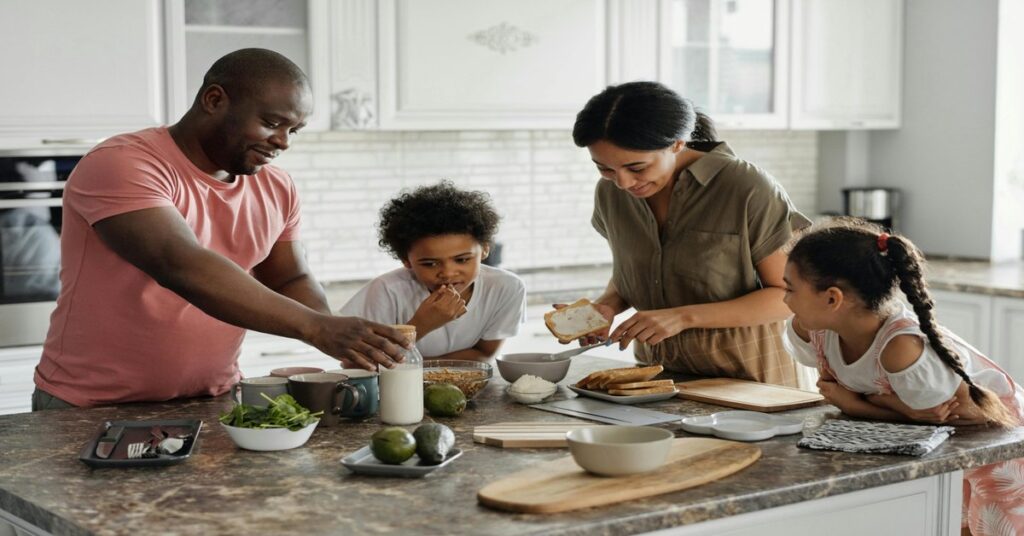When you put on your own oxygen mask first, you are not being selfish—you’re demonstrating parental self‑care, a crucial life skill your children will copy for decades. A growing body of research confirms that children don’t just listen to what we say; they mirror what we do. By regularly investing in your mental, emotional, and physical wellness, you create a healthier family ecosystem, safeguard your child’s long‑term development, and become the calm, present caregiver you’ve always wanted to be. Below are seven concrete, science‑backed benefits that show exactly why modeling self‑care helps you—and your kids—thrive.
1. Greater Emotional Availability & Self‑Regulation
Parents who practice stress‑relief habits such as mindfulness, adequate sleep, or regular exercise exhibit stronger self‑regulation skills. Studies link parental self‑regulation to fewer harsh or reactive disciplinary episodes, allowing children to feel safe and understood :contentReference[oaicite:0]{index=0}. When you stay centered, you respond—rather than react—to tantrums, homework struggles, or sibling fights, modeling healthy emotional control your child can imitate for life.
2. A Real‑World Blueprint for Resilience
Children learn coping strategies by watching how adults respond to challenges. Research shows that parents who model positive coping behaviors foster higher resilience scores in their kids :contentReference[oaicite:1]{index=1}. Whether you journal after a rough day or take a brisk walk to reset, you give your child a practical toolkit for bouncing back from setbacks.
3. Lower Household Stress & Better Mental Health
Stress is contagious inside a family unit. The latest U.S. Surgeon General’s advisory warns that untreated parental stress directly undermines children’s mental health :contentReference[oaicite:2]{index=2}. Self‑care—think therapy sessions, social connection, or hobby time—reduces your cortisol levels, which in turn lowers your child’s stress hormones. The result? A calmer home where everyone breathes easier.
4. Consistent, Healthy Routines Kids Can Trust
Regular bedtimes, balanced meals, and predictable downtime help children flourish. A 2024 systematic review confirms that structured routines are linked to better cognitive and self‑regulation outcomes :contentReference[oaicite:3]{index=3}. When you schedule your own workouts, reading time, or meditation right into the family calendar, you teach kids that healthy habits aren’t negotiable—they’re normal.
5. Stronger Parent‑Child Connection
Parents who feel rested and fulfilled are more present during shared moments, from bedtime stories to weekend bike rides. Family‑centered self‑care boosts patience and warmth, reinforcing a secure emotional bond, according to early‑childhood wellness experts :contentReference[oaicite:4]{index=4}. Presence—not perfection—is the secret ingredient to a trusting relationship.
6. Higher Self‑Efficacy & Confidence in Children
Modeling self‑respect teaches kids to value themselves. A 2024 study found that parental emotional support—rooted in parents’ own well‑being—directly increases adolescents’ self‑efficacy, helping them tackle challenges with confidence :contentReference[oaicite:5]{index=5}. When you treat your needs as legitimate, children learn to advocate for theirs, too.
7. Lifelong Healthy Habits & Physical Well‑Being
Lifestyle behaviors—nutrition choices, activity levels, screen‑time limits—are “caught” more than “taught.” Family‑level resilience research shows that modeling balanced habits shields kids against later health risks :contentReference[oaicite:6]{index=6}. Your evening jog or tech‑free wind‑down routine seeds healthy neural pathways your child will rely on long after they leave home.
Practical Ways to Start Modeling Self‑Care Today
- Schedule it. Block 15–30 minutes daily for an activity that replenishes you.
- Name your needs aloud. Saying “I’m taking a walk to clear my mind” normalizes emotional literacy.
- Invite participation. Ask your child to stretch beside you or share a quiet reading break.
- Set tech boundaries. Park phones during meals to model mindful presence.
- Celebrate small wins. Praise yourself and your child when either of you chooses a healthy coping tool.
Final Thoughts
Self‑care is not a luxury; it’s the foundation of effective parenting. By demonstrating healthy coping mechanisms, emotional balance, and consistent routines, you equip your child with an internal blueprint for lifelong well‑being. Start small, stay consistent, and watch both you and your children flourish—together.

